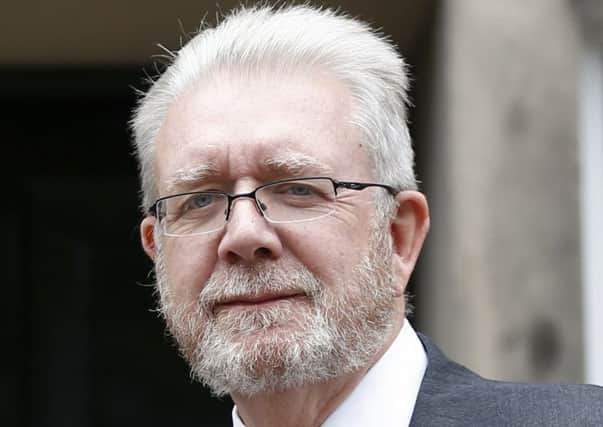MSPs told Holyrood '˜will not be equal partner' in Brexit talks


Akash Paun, a fellow at the Institute for Government think-tank, said while he expected there would be more than “consultation at the margins” with politicians in Edinburgh, Belfast and Cardiff, that “isn’t the same as saying there is going to be four equal partners round the table”.
Discussions are taking place between Holyrood and Westminster over the role the devolved administration should have in the UK’s negotiations, with an introductory meeting between the two Brexit minsters – Mike Russell and David Davis – taking place last week.
Advertisement
Hide AdAdvertisement
Hide AdMr Paun told MSPs on Holyrood’s European and External Relations Committee that because membership of the European Union “cuts across the devolution settlements in such complex ways that we do need to think about this as a UK-wide decision”.
He added that “isn’t the same as saying there is going to be four equal partners round the table, I don’t think that’s likely”.
Instead, he expected talks to be carried out “somewhere in between that point, where we are four equal partners and how things have too often worked in practice, where it is treated as a pure Westminster competence with consultation at the margins with the devolved governments.”
Mr Paun said discussions on the involvement of ministers in Holyrood, Cardiff and Stormont are necessary because “we don’t have systems to facilitate UK-wide decision-making”, with policy areas either reserved to Westminster or devolved to assemblies.
He added: “The starting presumption is things are either devolved or they are reserved, and therefore in either case you don’t need machinery for joint decision-making. That’s the theory but, of course, the practice is a lot messier than that and lots of things cut across the constitutional division of powers in messy ways.”
He said he could “not imagine the UK government even entertaining binding legislation that specifies the ways in which the devolved governments would have to be involved”. He said that instead there is more likely to be a political deal reached between ministers.
Mr Paun also said he would expect the devolved administrations in Scotland, Wales and Northern Ireland would have to grant legislative consent when a deal is reached on the UK’s exit terms.
He said he did not think this would give the Scottish Parliament a veto over Brexit, as First Minister Nicola Sturgeon has previously suggested.
Advertisement
Hide AdAdvertisement
Hide AdHe told the committee: “When some sort of Brexit deal is implemented, at that point I would very much expect we would see legislative consent motions put before probably all the three devolved legislatures, because Brexit will cut across devolved areas.
“But the convention, even though it is recognised in Scotland Act 2016, is done so in a way that means it’s probably not judicially enforceable, so I don’t think that gives the Scottish Parliament a veto.
“I think it would be in breach of established convention for the UK government to push ahead with something that changed the constitutional settlement of Scotland radically without reaching agreement on the terms of that with the Scottish Government and Parliament.”